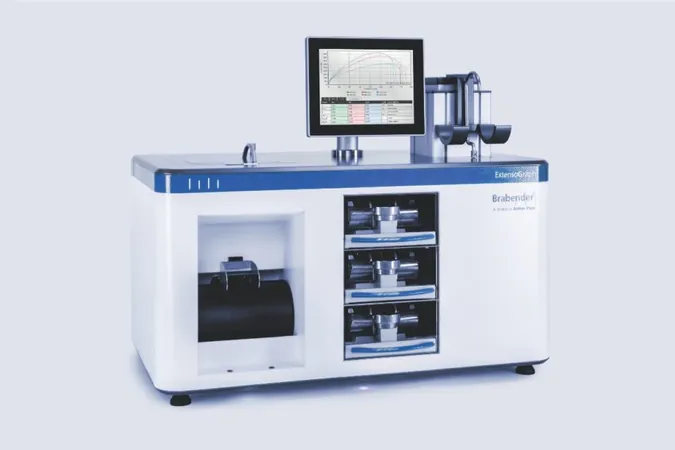
Breakthrough Nasal Vaccine May Help Eradicate Whooping Cough!
2024-11-19
Author: Wei
Introduction
As whooping cough cases surge alarmingly across the U.S., a groundbreaking nasal vaccine developed by researchers at Tulane University emerges as a beacon of hope in the fight against this highly contagious respiratory illness. Could this innovative approach redefine how we combat one of medicine's persistent challenges?
Limitations of Current Vaccines
Despite the effectiveness of existing pertussis vaccines in preventing whooping cough, they fall short in eliminating the Bordetella pertussis bacteria from the upper respiratory tract. This oversight is critical, as vaccinated individuals—who still harbor the bacteria—can unknowingly contribute to its spread within communities.
The Innovative Nasal Vaccine
The new vaccine introduces a game-changing strategy. It combines traditional pertussis antigens with an advanced adjuvant known as T-vant, specifically designed to enhance immune responses right where they are most needed—in the respiratory tract. A study published in npj Vaccines reveals promising results: mice vaccinated through the nasal route showed no traces of the bacteria in their lungs or nasopharynx three weeks after exposure. In contrast, mice that received the conventional intramuscular vaccine still carried significant amounts of the bacteria.
Researcher's Insights
Leading researcher Lisa Morici, a professor of microbiology and immunology at Tulane University School of Medicine, expressed optimism about the potential impact of this development. “By creating a vaccine that protects individuals while also preventing transmission, we aim to reduce whooping cough cases in communities critically,” she stated.
The Role of T-vant Adjuvant
The T-vant adjuvant is derived from bacterial outer membrane vesicles—microscopic particles that activate the immune system naturally. This new adjuvant successfully triggered a mucosal immune response, which is key to preventing the bacteria from colonizing the respiratory tract. Encouragingly, the study also reported no detrimental effects on lung tissues post-immunization, indicating strong safety profiles.
Current Whooping Cough Situation
This timely research arrives as the Centers for Disease Control and Prevention (CDC) reported an alarming five-fold increase in whooping cough cases compared to last year. The disease affects about 24 million people globally each year, with infants and the immunocompromised being the most vulnerable.
Expert Opinions
Experts, including co-author James McLachlan, associate professor of microbiology and immunology at Tulane, believe this new vaccine represents a significant advance. “Our findings highlight the urgent need for vaccines that do more than just shield individuals from illness,” he pointed out. “We require solutions that effectively curb the bacteria’s spread, and this innovative strategy provides a hopeful path forward.”
Conclusion
In summary, this new nasal vaccine embodies a critical step towards potentially eradicating whooping cough worldwide—could this be the breakthrough we’ve been waiting for? Stay tuned as further studies unfold!






 Brasil (PT)
Brasil (PT)
 Canada (EN)
Canada (EN)
 Chile (ES)
Chile (ES)
 España (ES)
España (ES)
 France (FR)
France (FR)
 Hong Kong (EN)
Hong Kong (EN)
 Italia (IT)
Italia (IT)
 日本 (JA)
日本 (JA)
 Magyarország (HU)
Magyarország (HU)
 Norge (NO)
Norge (NO)
 Polska (PL)
Polska (PL)
 Schweiz (DE)
Schweiz (DE)
 Singapore (EN)
Singapore (EN)
 Sverige (SV)
Sverige (SV)
 Suomi (FI)
Suomi (FI)
 Türkiye (TR)
Türkiye (TR)